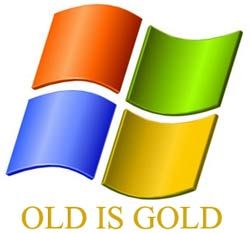 Now that all the applause and hype surrounding Windows 7 has abated (somewhat, anyway), it is time to take a cold, hard look at the OS’ prospects. And the more one looks at the mass market, the more one realises a rather startling fact – the real challenge for Win 7 is not its predecessor (the not-so-lamented Vista), or the latest from Cupertino, or even the newest distro from Penguintown, but a eight year old product, that should by conventional tech history have been obsolete – Windows XP.
Now that all the applause and hype surrounding Windows 7 has abated (somewhat, anyway), it is time to take a cold, hard look at the OS’ prospects. And the more one looks at the mass market, the more one realises a rather startling fact – the real challenge for Win 7 is not its predecessor (the not-so-lamented Vista), or the latest from Cupertino, or even the newest distro from Penguintown, but a eight year old product, that should by conventional tech history have been obsolete – Windows XP.
On the surface, that should be an absurd notion. An eight year old product should be the least of a new product’s problems. But the more one talks to XP users (and there are still millions of those around) the more one realises the challenge it poses to Windows 7. Most XP users’ arguments are simple – in terms of functionality, they can do most of their basic as well as advanced computing tasks on Windows XP, which has a lower hardware requirement than Windows 7. So why on earth should they upgrade? Windows 7 does look stacks better and has some terrifically cool features, but so far Microsoft has not come up with a compelling reason for Win XP users to move to it. Even removing support for it might not really work, given the fact that it has been around for almost a decade and even non-techies seem at home with it.
Ironically, Windows XP might just have died a quiet death a couple of years ago – manufacturers had stopped installing it on new systems and were going for Vista – but for Microsoft’s decision to allow netbook manufacturers to use it. At that time, it seemed a sensible move to stymie the threat that Linux posed on these smaller notebooks, but what it also did was expose a lot of users to an operating system that ran very smoothly indeed – most netbooks are far more endowed technologically than the computers for which Windows XP was originally intended.
The result: Windows XP is alive and kicking and is set to remain on netbooks until Win 7 comes up with a way to run faster and consume less battery and hard disk space. And even as it, manufacturers and developers will keep coming out with hardware and software that supports it, thus further extending its life.
A close friend of mine provides the perfect example of why some people might not take the Win 7 plunge. He has been using an R series Thinkpad since 2004, with 512 MB RAM, a 20 GB hard drive, and a Celeron processor. He is perfectly delighted with it and when I showed him Windows 7, said, “Yes, it is very pretty. But I can access e-mail, run MS Office, surf the Net, play around with PhotoShop, access all my social networks, blog and all on my current notebook. Why should I bother upgrading? I will need a new notebook or will need to upgrade this one significantly, pay for the new OS, and will have to invest in software all over again.”
Unless Microsoft can come up with a convincing answer to that query, it might just find its old OS chomping up Windows 7’s market share or at the very least, slowing its growth.
Similar Posts:
- Seven things that Windows 7 gets right
- RIP Vista? All eyes on Windows 7!
- Microsoft offering WinXP to Windows 7 Upgrade option!
- Nvidia releases drivers for Windows 7 Beta
- Microsoft shifting gears; Windows 7 Coming real soon!


0 comentários:
Enviar um comentário